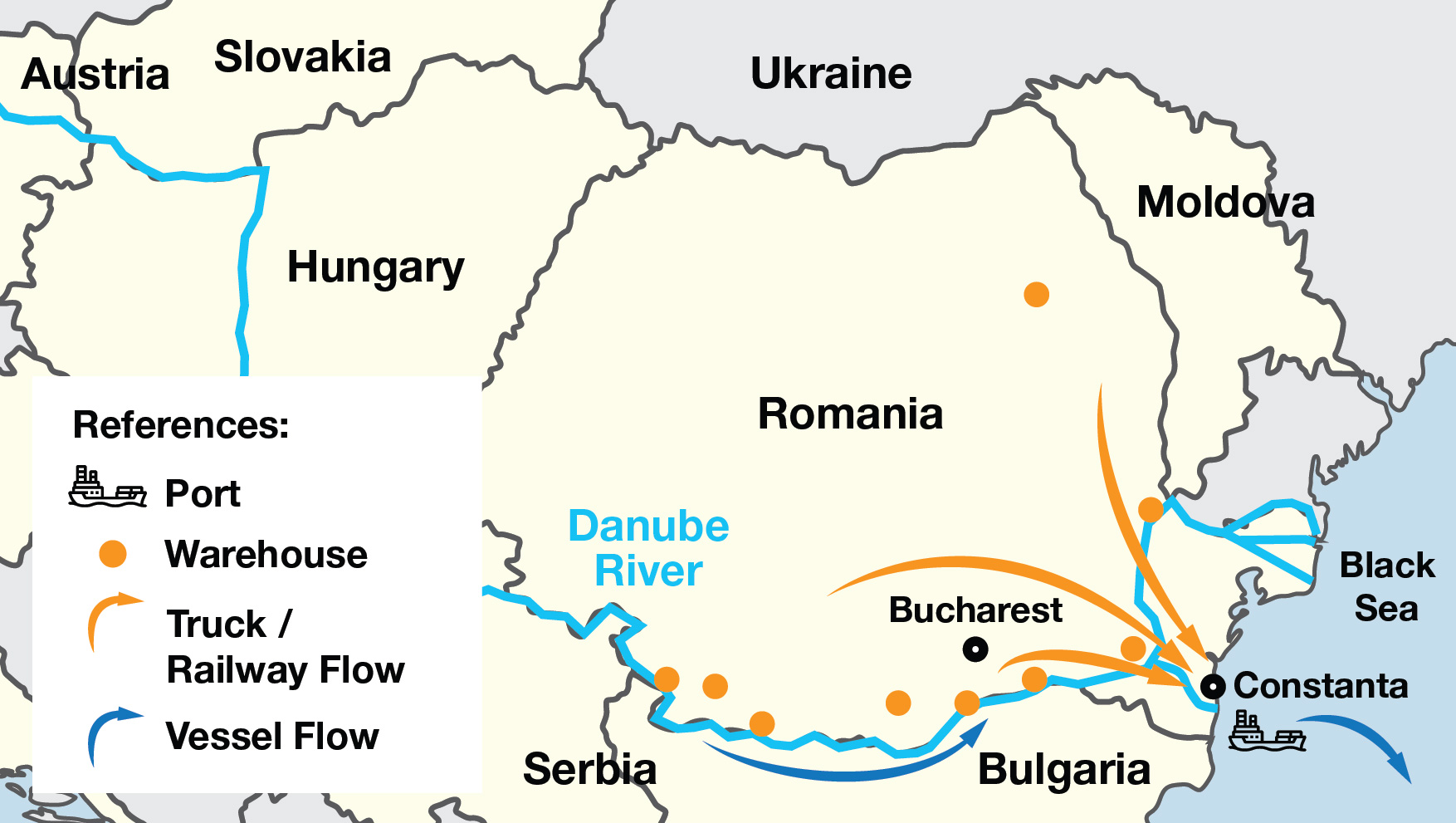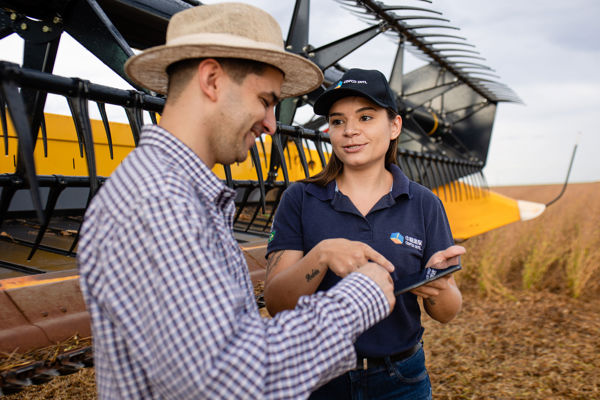
COFCO around the world: Growing along “Europe’s Mississippi”
Stretching through farmland and low-lying plains, the Danube-Black Sea canal is marked by Romania’s complex history. The first construction attempts were made in the 1950-ties but the 64km-long and 7 meters deep canal didn’t open until 1984.
Today, with the country firmly established in the European Union, the stretch of river linking Europe with the Black Sea serves as one of the continent’s most important trade gateways, facilitating the region’s networks with the entire world.

The company is a leading agribusiness in the region, with a presence in Romania, Serbia, Slovakia, Croatia, Bulgaria, Hungary, and Moldova. The Black Sea port of Constanta is the beating heart of the operation. COFCO International owns a terminal here with a capacity of 260 kmt that rolls out an elevation program of almost 4 million mt per year.
Connecting the Danube, Europe’s second largest river with the port of Constanta, the channel is also a key point of business for COFCO International’s Central European operations.
The company is a leading agribusiness in the region, with a presence in Romania, Serbia, Slovakia, Croatia, Bulgaria, Hungary, and Moldova.

Over the course of the last years, COFCO International achieved a leading market position with the highest market share in all traded products.
With more than 450 employees and up to 6 million mt traded yearly, the company has offices in Belgrade (Serbia), Budapest (Hungary), Sofia (Bulgaria) and Bucharest and Constanta (Romania).
The key physical assets are all spread in Romania. They include two inland silos and four silos spread along the Danube with a total capacity of 117 kmt, finally reaching the Black Sea via Constanta port where COFCO International owns a terminal with a capacity of 260 kmt that rolls out an elevation program of almost 4 million mt per year. Three additional silos are expected to be launched by next crop of 2022, increasing the silo network footprint to 187 kmt.
From Constanta, the biggest port in the Black Sea, COFCO exports wheat, barley, corn, rapeseeds and sunflower seeds to pretty much every corner of the world.

The Danube is Europe’s Mississippi - linking the continent with the Black Sea, it serves as one of the most important trade gateways, facilitating the region’s networks with the entire world.
“We have a leading position in all products we trade in this region,” says Marco Wahler, Head of COFCO International’s Central Europe and Black Sea regions, adding that the success is mainly linked to the company’s extremely agile and flexible business structure.

Marco Wahler, Head of COFCO International’s Central Europe and Black Sea regions, says that the strategy behind COFCO International’s success in this part of the world is total agility and a very flexible and reactive business structure.
“We are operating in a very developed and mature market in Europe and to be successful we need to be able to constantly react to changing market conditions at any given time.”
That means constantly assessing the most opportune destinations, transporting routes and origination countries.
COFCO International originates commodities in all of the CEE countries it is present in exporting to Europe, or distant parts of the world including the Middle East and Asia.
“We are extremely flexible all the time and constantly assessing routes, destinations and markets,” Wahler says.
With the help of EU funds flowing in to improve infrastructure, modernize farming and increase farmers’ productivity, the region has gradually grown its position as Europe’s agricultural powerhouse. Its output steadily increased over the last decade, reaching 65-70 million MT of grains and oilseeds, with approximately half of it destined for exports.
Europe’s Mississippi River
Romania, which ranks among the European Union’s top agricultural producers, is where the company has, so far, mostly focused its investments.

